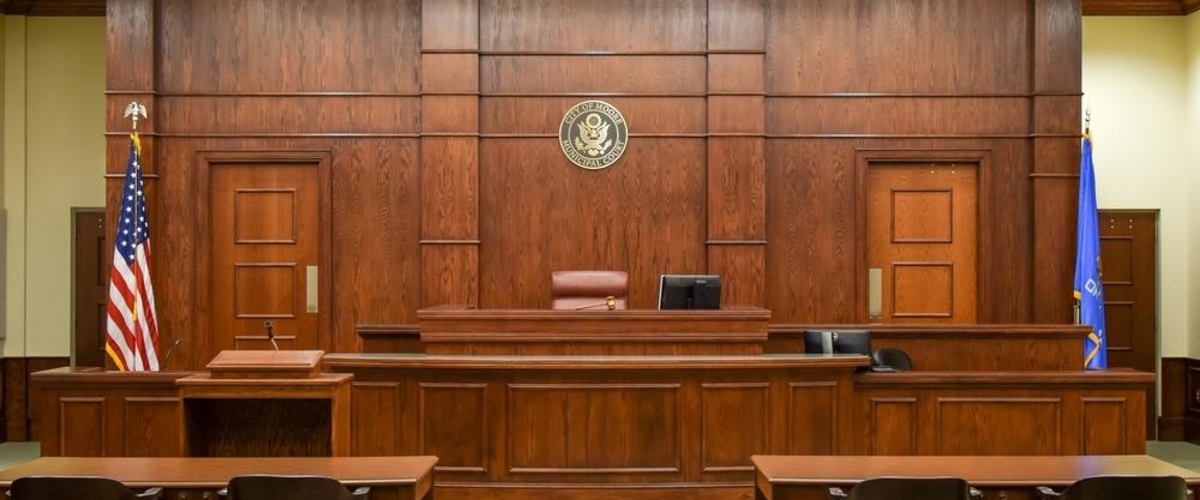CARRY RIGHTS GETS ITS DAY IN COURT
4th Nov 2021
Source Credit: guns.com | CHRIS EGER

The U.S. Supreme Court heard an hour of oral arguments for and against New York's strict "may issue" concealed carry scheme.
The case, NYSRPA v. Bruen, came before the highest court in the land to answer one question framed by the court itself:
"Whether the Second Amendment allows the government to prohibit ordinary law-abiding citizens from carrying handguns outside the home for self-defense."
The arguments, covered in the audio clip at the top, were delivered by Paul Clement on behalf of the gun rights proponents, NY Solicitor General Barbara Underwood responding for the State of New York, and Brian Fletcher who, as Principal Deputy Solicitor General, represented the Biden Administration's stand on the matter.
Clement summed up the crux of the issue in his opening remarks:
New York likens its law to a restriction on weapons in sensitive places. But the difference between a sensitive place law and New York's regime is fundamental. It is the difference between regulating constitutionally protected activity and attempting to convert a fundamental constitutional right into a privilege that can only be enjoyed by those who can demonstrate to the satisfaction of a government official that they have an atypical need for the exercise of that right.
That is not how constitutional rights work. Carrying a firearm outside the home is a fundamental constitutional right. It is not some extraordinary action that requires an extraordinary demonstration of need.
Petitioners here seek nothing more than their fellow citizens in 43 other states already enjoy, and those states include some of the most populous cities in the country. Those states, like New York, limit the firearms in sensitive places but do not prohibit carrying for self-defense in any location typically open to the general public.
Underwood, speaking in defense of New York's system, fell back on what some could argue as cherry-picked examples of past carry restrictions, and pointed out that other states have similarly restrictive practices to the one under review:
In total, from the founding era through the 20th Century, at least 20 states have at one time or another either prohibited all carrying of handguns in populous areas or limited it to those with good cause.
New York's law fits well within that tradition of regulating public carry. It makes a carry license available to any person not disqualified who has a non-speculative reason to carry a handgun for self-defense.
New York is not an outlier in the extent to which the state restricts the ability to carry firearms in public, and it's not an outlier in asking a licensed applicant to show good cause for a carry license.
Fletcher, representing the Biden administration, backed up Underwood's case, saying in his opening remarks, "New York's proper cause requirement is consistent with the Second Amendment because it is firmly grounded in our nation's history and tradition of gun regulation," then elaborating that, "Those laws remain in force in seven states today, and more than 80 million Americans live under their protection. They are, in short, both traditional and common regulations."
The justices were aggressive in their questions, with even the normally short Chief Justice Roberts, a nominal conservative that has been seen as a "swing vote" in recent years, asking a 32-line question of Fletcher. He also stressed to Fletcher the peculiarity of having to obtain a permit of some sort to exercise the right to keep and bear arms.
"I mean, you would --regardless of what the right is, it would be surprising to have it depend upon a permit system," said Roberts. "You can say that the right is limited in a particular way, just as First Amendment rights are limited, but the idea that you need a license to exercise the right, I think, is unusual in the context of the Bill of Rights."
Roberts also counted the best line of the day, asking Underwood, who scrambled to make a point that carrying a gun in a densely packed area such as New York City was different than in a more rural area.
"Well, how many muggings take place in the forest?" asked Roberts.
SO, HOW'D THEY RULE?
While an opinion in the case will not surface for months-- possibly as late as next June-- many read the tea leaves as bad for New York and bad for gun control.
The legal beat writers at just about every large newspaper and outlet in the country-- including several left-leaning organs-- seemed to agree on one thing: New York's strict gun laws may be on the ropes.
Just check out these headlines:
- AP: High court seems ready to strike down New York gun law
- CNN: Supreme Court seems poised to expand Second Amendment rights and strike down NY handgun law
- NPR: Supreme Court appears skeptical of New York's restrictive gun control law
- Politico: Supreme Court appears likely to void New York's gun permit law
- Reason: Supreme Court Seems Poised to Rule Against New York Gun Law
- USA Today: Supreme Court majority skeptical of New York law that limits carrying handguns in public
- Washington Post: Majority of Supreme Court appears to think N.Y. gun law is too restrictive
- Yahoo/NBC News: Supreme Court appears to suggest New York gun law infringes on Second Amendment rights
PRO-GUN GROUPS HOPEFUL
"Based on questions from the Supreme Court Justices,” said Second Amendment Foundation founder and Executive Vice President Alan Gottlieb in an email to Guns.com, “I’m confident we’re going to win either on a 5-4 or 6-3 vote."
He said suggestions from Underwood and Fletcher —both defending New York’s restrictive "may issue" carry law—that the case be remanded back to the lower courts smacks of an attempted stall.
"I think at that point the anti-gun rights justices, as well as the attorneys for New York, recognized they are not going to win," said Gottlieb, "and they were trying to forestall an unfavorable ruling. During the oral arguments, several justices affirmed that the right to keep and bear arms does not stop at the front door."
The Firearms Policy Coalition, like SAF one of more than 80 groups that have filed briefs with the court on the case, predicted that if the Court ultimately holds that New York’s carry license laws are unconstitutional, and instructs lower courts to apply the Court’s categorical approach laid out in Heller, many unconstitutional laws will be ripe for challenge.
“After today’s arguments, it’s clear that bans on the Second Amendment right to bear arms are unconstitutional and their days are numbered,” Brandon Combs, FPC founder and president, told Guns.com in an email. “Anti-rights states like New Jersey, California, Hawaii, New York, and Maryland will almost certainly be forced to respect the Constitution and allow their law-abiding residents to carry handguns for self-defense in public."

